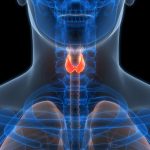Short and sassy, long and silky, braids or dreadlocks or Mohawks. Regardless of the shade or color, our choice of hairstyle can speak volumes about our personalities. It may be surprising to note that our hair also has another voice, that which decries our overall health and well being.
Our head of hair is, in a manner of speaking, a visible record of our nutritional intake, and when we are lacking in that arena, not even the most expensive shampoo or conditioner will be able to come to the rescue.
The average human scalp sheds between 50 and 100 hairs a day. Usually this amount is barely noticeable, given the fact that most of us possess 100,000 hairs in our head. Yet when the shedding process becomes more pronounced, our diet is very often the primary culprit.
Our hair contains two major components. The root, which is considered to be the “living” part of the hair shaft, lies below the skin. The strand, the part of the shaft that we see, is “non-living”. The root lies within a follicle, which possesses a rich blood supply, enabling nutrients to reach and nourish it. Hair typically grows between 1/4″ and 1/2″ each month, for about 3 years. It then enters a 3-month “resting phase”, during which time the old hair falls out and new hair grows. This cycle performs quite well as long as adequate nutrients are present to ensure proper growth. If a diet is lacking in key elements during the growth phase, the rate of new growth may be stunted. In extreme cases such as crash dieting or eating disorders, the hair follicles can enter their resting phase prematurely, resulting in excess hair loss as well as a significant delay in new hair growth to fill the empty follicles. Since the strand is considered “non-living”, the body will sacrifice sending nutrients to what it considers non-essential for overall health, and will instead send nutrition to the more vital organs. This in turn weakens hair, making it even more prone to falling out.
For optimal growth, hair requires certain vitamins and minerals, as does the rest of the body. Nutritional deficits in several areas can usually be identified as the major cause of the hair loss. A lack of vitamins A, B6, B12, C, D and E in the diet will definitely compromise a healthy mane, as well as insufficient amounts of minerals, such as copper, iron, zinc and folic acid. A closer look at some of these components may help illustrate their importance in preventing undue hair loss.
Vitamin A facilitates the body’s synthesis of retinoic acid, an important growth factor. The B vitamins are responsible for aiding the body in stress management, which is worth considerable attention since acute or prolonged stress can lead to hair loss. Inositol, another B vitamin, is itself a component of hair and has been demonstrated to actually accelerate the growth process.
Vitamin C aids the body in its absorption of iron, which is a necessity for hair growth, and is also responsible for collagen production.
Vitamin D reduces hair loss by stimulating the hair follicle and the cells that form the hair shaft.
Vitamin E encourages new hair growth by improving blood flow to the scalp. It accomplishes this task by building capillaries, which are part of the intricate transportation highway for blood throughout the body.
Armed now with the knowledge of why these elements are vital to keeping hair its healthiest and staving off premature and excessive loss, the next task is to facilitate incorporating them into a daily diet. If basic nutritional needs are being met, in terms of calorie demands supporting energy output, attaining appropriate amounts of these vitamins and minerals should take care of itself. We can encourage that process, however, by striving to include certain foods whose content boasts an abundance of what our hair needs. Since vitamin E is fat-soluble, incorporating foods that are high in omega-3 fatty acids will amply provide this. Foods such as salmon, flax, and trout are high in polyunsaturated fats. Monounsaturated fats, which can be found in olive oil, avocados, and a variety of nuts, are also beneficial. Vitamins A, B, C, and biotin are easily and deliciously accessible in most fruits and vegetables, especially the colorful varieties. Dark green leafy vegetables are particularly high in vitamin D. It is interesting to note that the body can absorb iron from food sources much more effectively when combined with foods that contain vitamin C.
With regard to necessary minerals, oysters are a rich source of both iron and zinc. Lentils and beans provide a significant amount of folic acid, while cashews, sesame seeds and soybeans offer high percentages of copper.
Certainly there are other factors that can easily contribute to hair loss. Hormonal shifts, such as one encounters post-partum and at menopause, can often trigger this process. The good news, however, is that whether incurred as a result of hormone or nutritional deficiencies, such hair loss is almost always temporary; and once the body is brought back into harmonious balance, the usual hair growth cycle will eventually resume.
A healthy head of hair is within your reach. The solution may be as simple as a trip to the grocery store, so start shopping and be sure to stock up on nutrient-laden delicacies. Short and sassy, or long and silky, get ready for heads to start turning!
References
3. www.eHow.com
About the Author
Cathleen Kronemer is an AFAA-Certified Group Exercise Instructor, NSCA-Certified Personal Trainer, competitive bodybuilder and freelance writer. She is employed at the Jewish Community Center in St. Louis, MO. Cathleen has been involved in the fitness industry for 22 years. Look for her on www.WorldPhysique.com.
She welcomes your feedback and your comments!






